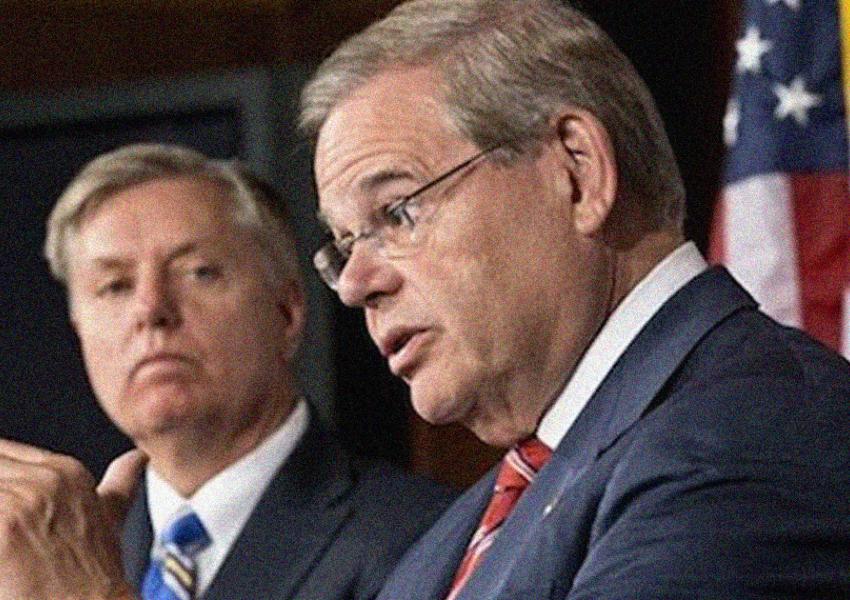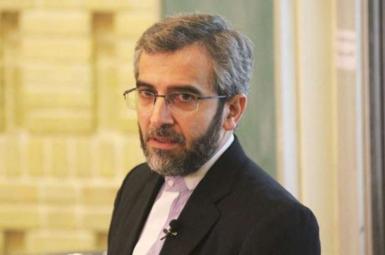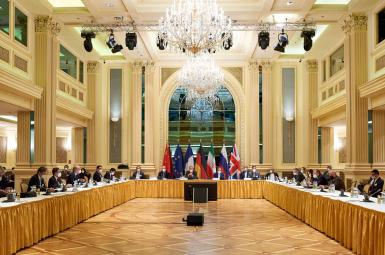
Forty-Three Senators Ask Biden To Tackle Iran Beyond Nuclear Issue
Forty-three US senators from both parties, many of whom opposed Iran’s 2015 nuclear agreement with world powers, released a letter on Thursday [March 25] asking President Joe Biden to work for an international agreement addressing issues beyond Tehran's nuclear program.
“Democrats and Republicans may have tactical differences, but we are united on preventing an Iranian nuclear weapon and addressing the wide range of Iranian behavior,” the senators write.
The letter was led by Democratic Senator Bob Menendez and Republican Senator Lindsey Graham, and signed by 41 other Democrats and Republicans, from a total of 100 in the chamber. Lobbying for signatures has been taken place in the past week with strong support from AIPAC, the influential pro-Israel lobby group.
The Biden administration has been exploring ways to revive the 2015 agreement, known as the JCPOA (Joint Comprehensive Plan of Action), which President Donald Trump abandoned in 2018 before imposing draconian sanctions. But progress has been stymied by an apparent impasse: while Biden officials have insisted Tehran should immediately reverse all steps taken in its nuclear program since 2019 beyond JCPOA limits, Iran has said the US should first lift sanctions and return to JCPOA structures.
The senators’ letter appears designed to reflect the views of two groups: those – mainly Republicans – who believe the US should maintain Trump’s sanctions as leverage and not recommit to the JCPOA without wider Iranian concessions; and those who support Biden’s approach that the JCPOA should be revived as a step towards a possible wider agreement covering other aspects of Iranian behavior the US opposes.
Hence the letter notes the “long-held view” of both parties that a nuclear-armed Iran would threaten US national security but makes no clear statement as to how this is best avoided. Likewise, the letter highlights that “Iran has accelerated its nuclear activity in alarming ways including increasing its centrifuge research and production and enriching uranium up to 20 percent” – an argument long used by JCPOA supporters for reviving a deal limiting Iran’s atomic activities.
The letter asserts that says Iran also poses a threat by exporting arms, supporting groups the US opposes, and with its ballistic and cruise missile programs. The senators also call for the release of political prisoners in Iran.
Menendez, now Senate Foreign Relations Committee chairman, was among Democrats who joined nearly all Republicans in both houses of congress in opposing the JCPOA, which was signed by the administration of Barack Obama, when Biden was vice-president.
A 13-year United Nations arms embargo on Iran ended in October, and while Tehran has not ruled out regional agreements on defense or security it has stepped up its missile program as regional rivals, including Saudi Arabia, the United Arab Emirates, have all boosted their arsenals, including advanced aircraft, with US support.
As Iranian leaders have recently expressed no urgency over reviving the JCPOA but rather trumpeted their success in surviving US ‘maximum pressure,’ Rafael Mariano Grossi, the head of the United Nations’ International Atomic Energy Agency (IAEA) has warned that concerned powers need to decide urgently if they want to revive the JCPOA or not.








